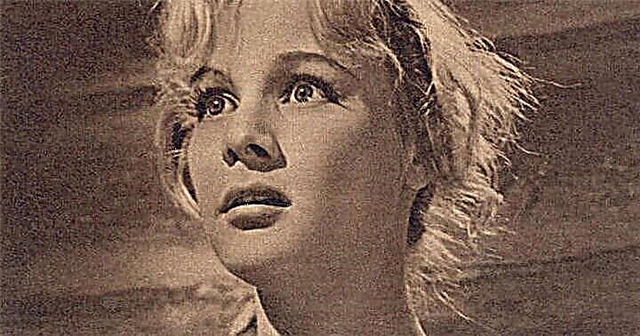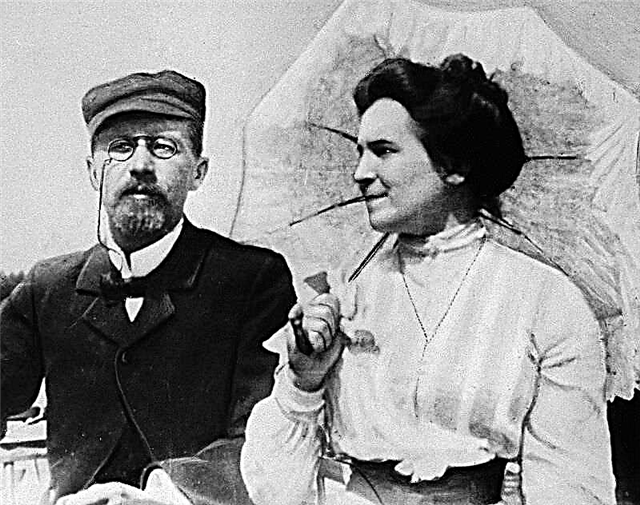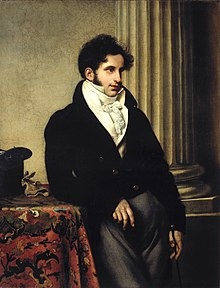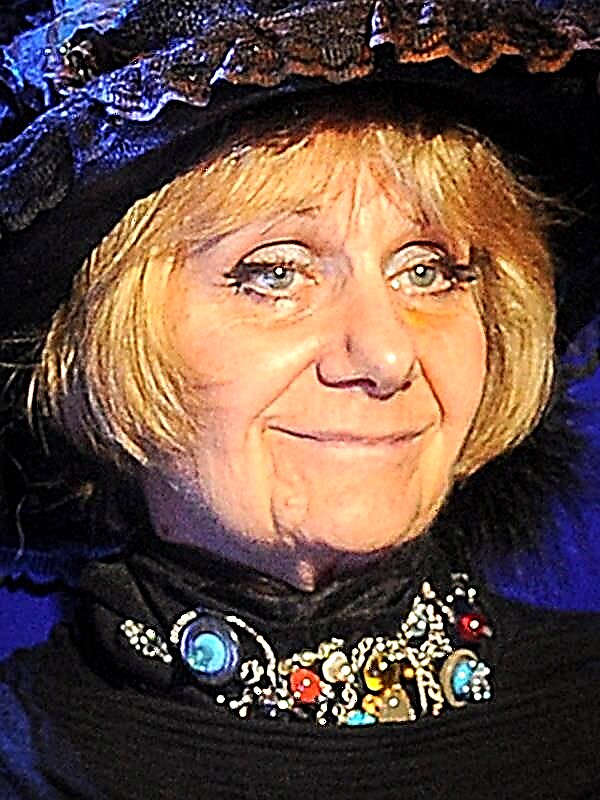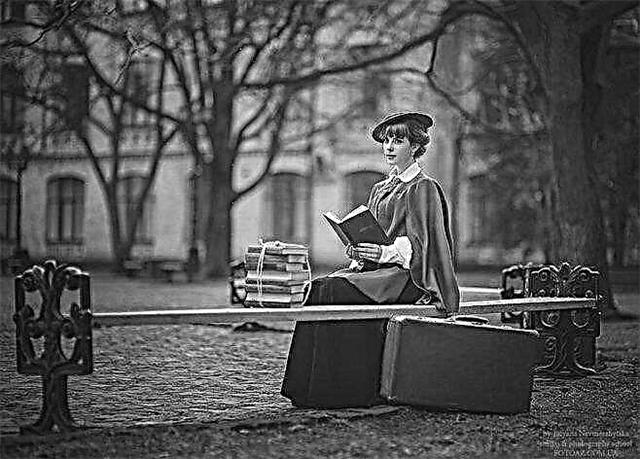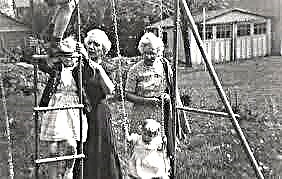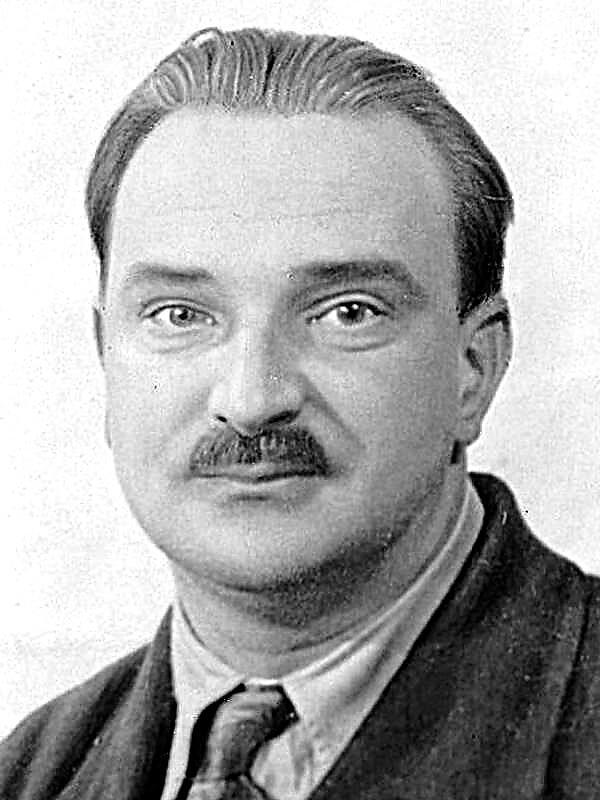To the teacher’s question: “Which writers do you know?” - the students instantly respond: “Pushkin,” - then they recall Lermontov and other authors. His work made a great contribution to the development of culture. He is the founder of modern Russian poetry. He used Russian-French methods of literature in his works, and his work, lighter and more melodious than the verses of his predecessors, became the new standard of the purest literary Russian language.
Origin and formation
Birth and childhood
The famous writer was born on June 6, 1799, came from an untitled noble family. His family was not rich, but noble. His mother is Nadezhda Osipovna, the granddaughter of General Peter the Great, Hannibal. Maternal great-grandfather, Abram Petrovich Hannibal, was a pupil and servant of Peter I, after which he became an engineer and general.
As a child, the poet lived with his grandmother in the village of Zakharov. The memoirs of those years, Alexander Sergeevich reflected in his early works: “Monk”, “Bova”. Grandmother, Maria Alekseevna, spoke of her grandson that he was an inquisitive boy, but he studied poorly, because he did not finish his homework on time. One can’t stop it, then one can’t stir it up. She appointed the child a nanny from among the serfs, Arina Rodionovna Yakovlev, who read him fairy tales and sang songs. The writer recalled this time with love and pleasant sadness.
Adolescence and youth
Education Pushkin received in St. Petersburg. At 12, he entered the Tsarskoye Selo Lyceum, where he studied for six years. These years were one of the most fruitful periods in his life. Its development was influenced by French poets of the 17-18th century, whom he studied from childhood in his father's library. Ancient ancient poets also influenced: Homer, Virgil. Of the Russian masters, words on him impressed Batyushkov, Zhukovsky, Davydov.
The lyceum taught the best teachers of Russia. There he met prominent peers who were destined to contribute to the history of Russia: with Pushchin, Delvig and Kyukhelbeker. Already at this time, young Alexander joined the literary society "Arzamas". In 1817, the poet graduated. Now he is a college secretary, he has been appointed to the College of Foreign Affairs, but the career of an official did not please him. Pushkin’s fate determined him a more significant place in history, and the young maximalist felt this.
History of success
Pushkin’s creative world is as diverse as his nature. He tried himself in writing poems, ods, elegy, fairy tales, novels, poems, plays, short stories and short stories. All genres succumbed to his original creative manner, they were all conquered by the master. Creative luck did not leave the genius, and today we appeal to all his masterpieces, without forgetting a single work.
However, at the time of the poet himself, success was not so obvious and universal. He often needed money, not knowing how to manage his talent. You can compare the circulation of his journal "Contemporary" and the government publication "Northern Bee" under the leadership of F. Bulgarin, his ill-wisher and opponent. If the Pushkin mass media, where his outstanding works were published, lost readers every year and, in the end, went bankrupt, then the Northern Bee, with an unchanged propaganda course, gradually only gained momentum. Thus, the creative path of Alexander Sergeyevich was thorny.
First work
Pushkin’s first work “To a Poet Friend” appeared in 1814. It was published in the journal "Herald of Europe", it is believed that he devoted the work to Kuchelbecker.
In 1815, an exam was held at the lyceum students, Alexander read his poem "Memoirs in Tsarskoye Selo." The outstanding poet G. Derzhavin admired the boy’s talent, he even wanted to hug him, but after reading the poem he disappeared, they could not find him for a long time. The tsar’s educator and famous literary figure V. Zhukovsky was already convinced that Pushkin would surpass all his teachers, and the young talent was only 15 years old. Then he was recognized as a promising poet, there was no doubt in his gift. The history of Pushkin, as the greatest master of the word, began precisely in the Lyceum.
Recognition and conflicts with authority
The lyrical hero of the poet dates back to antiquity. Vivacity, a sense of inner freedom, love, but at the same time humility - these are the qualities of the hero.
Alexander Sergeyevich relied on classicism for a long time, then he began to work in the spirit of romanticism, and in later works he relied on realism.
As you know, Pushkin criticized the oppression of serfdom and other domestic political problems in Russia. He expressed the ideas of the noble revolutionaries. The emperor was furious at the insolence of the young poet. The decision was tough: to send Pushkin from St. Petersburg to the south.
- South link. He spends four years in exile, but even there the author is not disappointed and does not give up. He enjoys the time spent in the Caucasus. There are high mountains, a blue sky and a brilliant sea. From there he headed to the Crimea, where he was attacked by the temptation to emigrate from a country where he is not appreciated. But he overcame it, because he believed that his work needed compatriots, he should be with them. After the southern exile arrives in Chisinau, to the place of expulsion. There he creates sketches of the famous poem “Gypsies”. In the south he meets the secret southern society of noble revolutionaries who are preparing a plan for an uprising. But Pushkin was already famous, so the agents easily found him and reported him to Petersburg: the poet scolds the military authorities and the government. The writer is sent to indefinite exile in a family estate in the cozy village of Mikhailovsky.
- Link in Mikhailovsky. In him, he felt a spiritual kinship with his ancestors and homeland. Alexander Sergeevich was very keen on history and the study of his roots. The nanny read fairy tales to him, and Pushkin, inspired, wrote "On the Fisherman and the Fish", "On the Dead Princess and the Seven Knights" and other tales. In Mikhailovsky, he spent two happy and serene years. There he was carried away by the chronicles and the topic of relations between ordinary people and the authorities. The novel Boris Godunov ends, writes Eugene Onegin.
December 14, 1825 there was an uprising of the Decembrists, this greatly shocked the poet. Soon Tsar Nicholas I returned Pushkin from exile.
Stages of creativity
- Lyceum (1811-1817). At the heart of creativity lies patriotic pathos. Poems dedicated to friends and future ministry for the good of the motherland were written: “Memories in Tsarskoye Selo”, “There was a time ...”, “To a friend of the poet”, “To Zhukovsky”.
- Petersburg (1817-1820). At this stage, the poet sharply criticizes power. His freethinking attracts the attention of censors. The works are written: “Liberty”, “To Chaadaev”, “Tales”, “Village”, etc. In addition, the author is fond of Russian folklore, working on "Ruslan and Lyudmila."
- South link (1820-1823). The poet is fond of civic lyrics, writes about the fate of the fatherland: “V.L. Davydov, “Dagger”, “Prisoner”, “Daylight has gone out ...”, “Song of the Prophetic Oleg”. At the same time, romanticism develops and grows stronger in his work, the link greatly contributes to this: “The Caucasian Captive”, “The Bakhchisarai Fountain”. Pushkin also begins work on Eugene Onegin.
- Link to Mikhailovsky (1824-1826) . Romanticism, fueled by a special Caucasian flavor, is replaced by the harsh realism of the middle band. The poem “Gypsies” was written, and then work on the Boris Godunov tragedy began. In addition, the poet composes one of the most famous poems "I remember a wonderful moment ...".
- Moscow period (1826-1830). After the authorities’s repressive response to the Decembrist uprising, the poet does not betray his ideals and writes lines in support of the convicted nobles: “Arion”, “In the depths of Siberian ores ...”, “Anchar”.
- Boldin Autumn (1830) and the second Boldinsky autumn of 1833. The author realizes and analyzes his literary vocation, discussing the plight of the poet: “The Prophet”, “Conversation of the bookseller with the poet”, “Poet and the crowd”, “Black”, “I have erected a miraculous monument to myself ...”. He is fond of prose and drama, writes Little Tragedies and Belkin's Tales. The process of creating Eugene Onegin is coming to an end.
- Creativity of the 30s (1831-1837). Pushkin is interested in the historical and social contradictions between the people and the authorities, man and the state. The poem “The Bronze Horseman”, “Dubrovsky”, “The Captain's Daughter” was written.
Personal qualities
The personal qualities of Alexander Sergeyevich Pushkin influenced his life. He was sincerely devoted to his work, despite the frequent mood swings that are characteristic of all poets. He was kind to his beloved nanny and helped her. He also loved women very much, because it was they who were muses for him.
The ideals of Pushkin are, first of all, political, spiritual and social freedom. He strongly condemned slavery in all its forms and manifestations: from serfdom to the rule of fashion over secular society. He also praised honor and valor, loyalty to the fatherland and moral principles, a strong love for the family, homeland and chosen one. He knew how to distinguish the beauty of nature and often set its wisdom as an example to people. These are the features of the worldview of Alexander Sergeyevich.
Pushkin’s good qualities often brought him some trouble. He was not greedy and dependent on the consumption of material goods, so he never had money, the family often needed. His blind and zealous love for his wife turned into a burning and unjustified jealousy, which destroyed him. His open soul was too susceptible to outside opinion, so the poet often fought in duels and quarreled with his surroundings. His thirst for justice also played a cruel joke with him: for his accusatory verses, the author was punished with links and ruthless criticism in the reactionary government press.
Personal life
It is difficult to list all the hobbies of the loving poet in one paragraph, so we described the detailed history of his adventures in the article “Pushkin women».
Wife
Whom did Pushkin love? There were many women in his life, the poet conquered them with his eloquence. But in December 1828, Alexander meets Natalya Nikolaevna Goncharova and realizes that she is the limit of his dreams. All men compared her to a goddess. Pushkin said that he fell in love with sixteen-year-old Natalia, and his head was spinning. The girl's heart was beating strongly, she fell in love with an extraordinary and ardent gentleman, although she was surrounded by the attention of noble and wealthy people. Less than a year later, the poet made the girl of his dreams an offer to marry, but the mother of the lady was against the wedding: the groom ruined her daughter’s career at court. She was Her Majesty's favorite maid of honor. In 1830, Pushkin, having adjusted his financial affairs, made a match for Goncharova for the second time, and then the family, giving way to pressure, agreed. After the wedding, they went to the estate of Alexander Sergeyevich, then to St. Petersburg.
Nicholas I was not indifferent to a married woman and desperately hoped for reciprocity. Alexander Sergeyevich received a salary from the king and took up the history of the Pugachev riot. It was necessary to find the necessary material, so the poet was forced to travel to other cities, and Natalia was closely monitored. The writer loved his wife very much, his letters are riddled with longing and tenderness. But I must say that his wife withstood the test of separation and did not change her loving husband.
Children
Pushkin had four children in marriage: Maria, Alexander, Grigory, Natalya. They all loved their father, a cheerful and loving family man. However, fate parted them, and did not give the children enough time to learn and understand their father.
It is known that before his death, Pushkin felt immense guilt before the children for leaving them orphans and without a significant condition. Therefore, he wrote a penitent letter to the king asking him to forgive him all insults and take care of the unfortunate family. Nicholas I went to meet the long-time ill-wisher, and after his death fulfilled all the promised: he supported the family financially.
Duel
The reasons
Pushkin arrived in a depressed state after the death of his mother. But to this grief was added the news of Dantes, who was courting the poet’s wife. On November 3, the friends of the famous writer reached an anonymous insult to Natalia. The poet wanted to protect the honor of the beloved woman and mother of his children. He was sure that the root of evil was Dantes, so he challenged him to a duel. Dantes's adoptive father, Hecker, was worried about the fate of the stepson, agreed with Alexander Sergeyevich to postpone this event for two weeks. Soon, Dantes made an offer to Natalia’s sister, Catherine, then Pushkin decided to noblely abandon the duel. But, despite the marriage, the rumors about the persecution of Natalia Goncharova from Dantes did not stop. The people spread dirty gossip that Dantes specially married Catherine in order to save the honor of the wife of a world famous poet. Natalia asked her husband to leave Petersburg, but he did not listen to her and did it his own way. He wrote a message to Dantes's adoptive father. Pushkin’s letter was dedicated to the homosexual relationship between Haecker and his adoptive son, which, according to rumors, did exist. Then Dantes recalls a long-standing challenge and accepts it in order to have the right to shoot first. The last duel of the poet was appointed through his own fault.
Another version says that Pushkin was ordered by agents of the tsarist secret police, allegedly the initiative came from the tsar himself. He saw that Alexander Sergeyevich was not going to abandon his free-thinking mindset, so he decided to get rid of him, not by an official decree, but by a cunning trick. Dantes was a careerist, came to Russia for money and ranks, it could be easily used for his own purposes. Probably, the performer of the dirty business did not think about the consequences of his act, because he was not awarded, but was forever expelled from the country. This conspiracy theory is not particularly convincing, since there is no evidence other than indirect.
Death
The terrible event took place on January 27 on the Black River. Pushkin was badly wounded. The bullet went through the neck of the thigh and hit the stomach. If the bullet hadn’t reached his stomach, he could live and give the people a great many interesting works, but fate decided otherwise. It only remained to wait for death.
After a fatal mistake, Alexander Sergeyevich Pushkin lived another two days. Before his death, the poet wrote to Nicholas I that he apologizes for violating the ban on duels. The king forgives, promises to take care of his wife and children.
The entire literary elite gathered at the poet’s funeral, people mourned for loss with incredible strength.
Pushkin places
- Pushkin House located in St. Petersburg, part of the All-Russian Museum of Alexander Sergeevich. In September 1836, the poet's family rented an apartment on the embankment of the Moika River. At the moment, tourists come to visit the author, because there are daily excursions.
- Same memorial apartment the sun of Russian poetry exists in Moscow, on the Arbat. This building is included in the list of cultural monuments, it was in it that the couple lived, soul to soul, after the wedding.
- In the Moscow region, in the village of Yaropolets, is fabulously beautiful Goncharovs estate. Unfortunately, the house was damaged during World War II due to a fire. Later it was restored, made recreation facilities. Now all lovers of Pushkin’s creativity can plunge into the atmosphere of that time and relax with their souls.
- Childhood Alexander Sergeevich remember the walls estate Zakharovo. It was there that he lived with his mother and grandmother, also became a pupil of his beloved Arina Rodionovna, who interested Pushkin with fairy tales. Because of this, now our children are growing in the magical valley of the Lukomorye. This house became an image for the Larin’s estate (the novel “Eugene Onegin”).
- The beauty of historical literary A.S. Pushkin Museum-Reserve "Big Vyazemy" the poet and other famous and significant figures of that time were glorified. People say, if you pay attention to the heroine of The Queen of Spades, you can find a similar resident of this estate.
- In Moscow, near the metro station "Red Gate" stands a majestic rich House Volkov-Yusupov. It is believed that the architects who built the St. Basil's Cathedral built it. This house is an architectural complex of several towers, where exhibits are also preserved reminiscent of Pushkin.
- The poet and his whole family were buried near Pskov, in the village of Pushkinskiye Gory, in Svyatogorsky monastery. The writer was very fond of devoting time to ordinary parishioners and rector. In the 20th century, they wanted to make a museum in the monastery; near the end of the century, they founded a man’s monastery.
- Pushkin spent his youth and maturity in Mikhailovsky estate. The estate was inherited from his great-grandfather to his mother. The house was in the hands of the state in 1899, and a museum was made of it. Now you can relax and feel the spirit of Russian poetry there.
- Pushkin House-Museum in the village of Boldino in the Nizhny Novgorod region.
Statements about Pushkin
N.V. Gogol, a famous writer and friend of Pushkin:
Under the name of Pushkin, the thought of a Russian national poet immediately dawns on him. In fact, none of our poets is superior to him and can no longer be called national; this right decisively belongs to him. It, as if in a lexicon, contained all the wealth, strength and flexibility of our language.
Pushkin is an extraordinary phenomenon, and perhaps the only manifestation of the Russian spirit: it is a Russian man in his development, in which he may appear in two hundred years. In it, Russian nature, the Russian soul, the Russian language, the Russian character were reflected in the same purity, in such purified beauty, in which the landscape is reflected on the convex surface of optical glass.
A.A. Akhmatova, poet and follower of Pushkin:
... this young man will do a lot of honor to Russian literature.
V.F. Odoevsky, critic and writer:
If there was ever a Renaissance in Russian poetry, then it was expressed in one poet - Pushkin.
A.A. Block, poet of the silver age:
Pushkin is an extraordinary phenomenon and, perhaps, the only phenomenon of the Russian spirit: it is a Russian man in his development, in which he may appear in two hundred years. In it, Russian nature, the Russian soul, the Russian language, the Russian character were reflected in the same purity, in such a purified beauty. in which the landscape is reflected on the convex surface of the optical glass.


